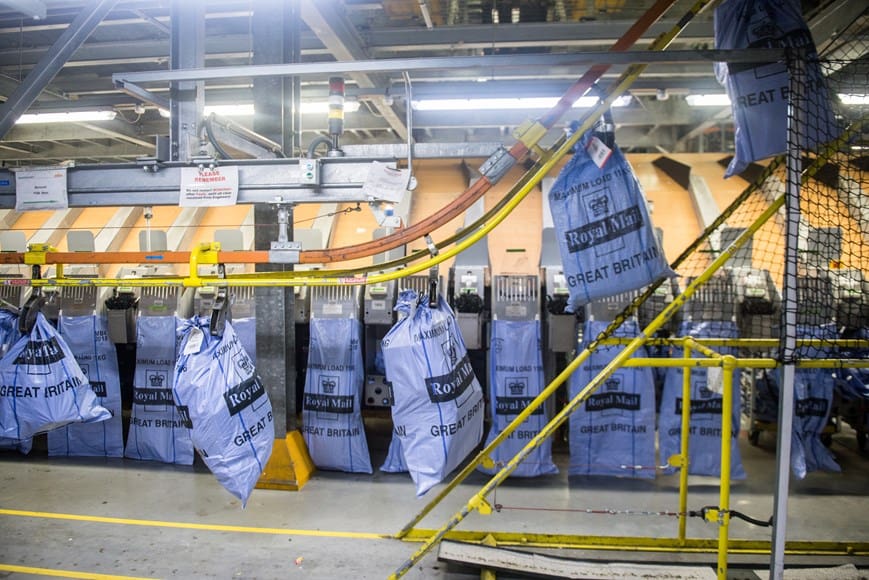
On the 14th March 2024, the DCA secured an in-person opportunity for DCA member companies to get a face-to-face opportunity with Markham Sivak who is taking the lead on the Ofcom opinion gathering process with key stakeholders about the Universal Service Obligation (USO) and the ramifications it could have. Those stakeholders include all businesses which depend upon the postal services provided by Royal Mail for bulk catalogue circulation for customer acquisition and reactivation, direct mail campaigns and customer communications.
With a closing date of 3rd April 2024 to share your views with Ofcom it is key that you and your colleagues consider how any changes to the Royal Mail service could impact your business.
We are all aware that Royal Mail is facing significant financial difficulties and know too that postal service providers in other countries in Europe have also had to find a commercial balance. This inevitably requires acceptance that the (global) fall in addressed mail volumes will continue making the established ‘rules’ of six days/week household delivery service uneconomic even if heavily subsidised. Change has already been introduced in some European countries which are now delivering mail to households on a less frequent basis which means that there is a precedent here. Further that a degree of change will need to be introduced by Royal Mail in the UK to protect the long-term future of the postal service as a whole but which is currently loss-making. Royal Mail’s owner cannot secure the confidence of the City to invest in a service which is unable to demonstrate a clear plan for a return to profit. Without investment, Royal Mail cannot continue with its drive to mechanise and improve productivity.
Here in the UK, as mail users, we are mindful that any changes that Royal Mail tries to introduce to the way in which it provides its service, or that could in any way impact jobs, will likely meet with strong objections from the CWU. With many DCA members having suffered from the knock-on effects of Royal Mail strikes in the recent past, the knock-on effect of this review of the USO by Ofcom is clearly a deep concern. But beyond that, lies the bigger picture which is the core reason why this Ofcom consultation is vital to our sector.
Shona Jameson, CMO, Cotton Traders who with John Ellis, MD, The Mailshop represented DCA members on the discussion panel with Markham Sivak of Ofcom agreed that something must change. For Ofcom, fielding and gathering the views from brands which use the postal service in volume is a key part of its investigation as it seeks to understand the implications of any change to service levels to these businesses.
Ofcom’s own modelling has found that last mile postal delivery rounds are under-utilised and that this is only likely to be addressed with a reduction in the number of delivery days offered, providing scope for consolidation of the mail for each round which would require a change to the USO. Shona was quick to point out that any reduction in the number of delivery days would inevitably mean that items like catalogues from numerous businesses would all be getting delivered on the same day(s). This would impact response, share of wallet, and she stressed that the ability to time mailings to land on certain days of the week was key to the ability of any mailer to have appropriately staffed fulfilment operations in place. Forecasting would become much more difficult and there would be a need to adjust shift patterns in the call/contact centre and in fulfilment.
If the service was to drop to a five-day delivery operation, it could work as weekdays are most important, but if the service is not trackable and/or priced at an economic rate, mailers would likely reduce their spend against the reduction of timing options. The notions of accepting a two or a three-day delivery operation, or of bulk mail being delivered every second working day to optimise routes, would wreck current member business planning. How would mailers be able to time digital support communications for mailed offers? How can mailers operate without improved certainty of delivery? How too would this impact the ability of mailing houses to meet client requirements when all mailers would be looking to have their mail processed on fewer days each week?
Currently, postage rates have been increasing more frequently, with no defined service improvement, and this too creates major issues with budgeting BUT with response from mailings being anything up to 200 per cent higher than offers than from digital channels, direct mail is a key marketing tool even with the increased costs of paper, print, wrapping, and postage.
Many members have been aghast at the glaring contradictions coming from Royal Mail spokespeople. Some attributing bulk mailers (catalogues, magazine, direct mail) to underpinning and enabling the USO to continue to serve consumers, whilst others have said that the future for Royal Mail lies with packets and parcels. No one appears to have joined the dots to link the response generated from bulk mail with also generating orders that are then shipped out to consumers. It was also pointed out that there are far more competitors for Royal Mail in the ‘parcel space’ and that it was achieving a very small market share.
Further, what we expect as customers of Royal Mail is a service which we AND our customers can trust and rely on – that is our bottom line. Royal Mail has lost significant demand due to the inefficiency of its operations which have fuelled consumer mistrust. Prices keep increasing for a service which is becoming less and less reliable.
If Royal Mail cannot modernise due to union pressures and no competition is permitted to compete with it on letters, by providing exactly the same service at the same price to consumers regardless of distance between sender and recipient, in essence the USO, what alternative is there?
Catalogue and direct mail producing retail brands are invited to join John Ellis at 2pm on 21 March for a virtual recap of the key points shared by members at the DCA Spring Conference + details on how to submit a response to Ofcom. Contact us to reserve your place.








Share